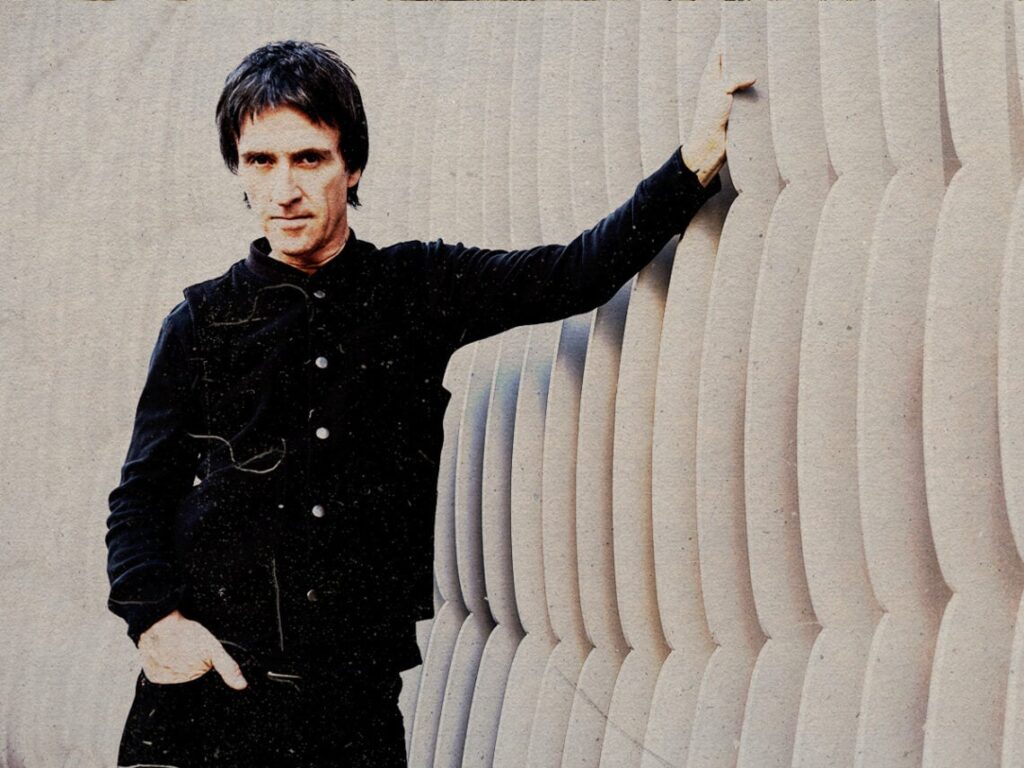The song Johnny Marr called “a highlight of my life”
 Posted On
Posted On
(Credits: Far Out / Andy Cotterill)
Every musician tends to have those few moments that are impossible to equal again. While bands often seem to struggle to get anything down on tape in the studio, there are often great songs that feel like they take no time at all, as if the group captured a feeling that no one else can touch. Although Johnny Marr may have had a few of those moments when working with The Smiths, he admitted that one of the greatest feats he ever witnessed in the studio wasn’t even done by him.
Throughout The Smiths’ career, Marr was always the rock and roll side of the band. Although the group may have fit snuggly into the sounds of indie rock during their inception in the 1980s, Marr’s style seemed to be ripped straight out of the 1960s, sporting the same kind of mop top haircut that wouldn’t be out of place on Brian Jones of The Rolling Stones.
Even though his look was a throwback, his guitar playing broadened the range of what indie rock was capable of. Rather than focusing on being strictly a rhythm or lead player, Marr was interested in creating sonic textures that would resonate with the listener long after he stopped playing, whether it was the strange alternate tunings he would use to create ‘The Headmaster Ritual’ or the heavily delayed introduction to ‘How Soon Is Now’.
Although Marr could create a landscape with just a guitar and a handful of effects, Morrissey brought poetic sophistication to everything he sang. Instead of looking to the great rock and roll lyricists of old, ‘The Moz’ was looking to make songs that fell in line with poets like Keats and Yeats, playing with the concept of language on pieces like ‘What Difference Does It Make’.
While the band would see some of the first creative triumphs on their debut with ‘This Charming Man’, it wasn’t until they reached their third album, The Queen is Dead, that they solidified themselves as one of the greatest indie outfits in the world. From the loneliness of ‘There Is a Light That Never Goes Out’ to the pure anger of the title track, the album shows each member working to their strengths, with Andy Rourke playing some of the greatest basslines of his career.
Even though Morrissey was known to make beautiful odes to self-pity, none hit as hard as ‘I Know It’s Over’. Examining his own state of loneliness, the frontman paints a vivid picture of feeling buried alive while also finding time to be snide about those who claim to be so good-looking and charming only to end up alone at the end of the night.
While the lyrics were central to Morrissey’s performance, Marr thought the power came from how he recorded the final take, saying, “Morrissey’s vocal on ‘I Know It’s Over’ – I’ll never forget when he did that. It’s one of the highlights of my life. It was that good, that strong. Every line, he was hinting at where he was going to go. I was thinking, ‘Is he going to go there? Yes, he is!’ It was just brilliant.”
Across the rest of the track, it often sounds like Marr and Morrissey are communicating with each other through music, as Marr answers his vocal with distant guitar squeals. As much as The Smiths may get overshadowed by Morrissey’s lyrics from time to time, ‘I Know It’s Over’ is the ultimate example of the frontman and Marr working in sync with each other.
[embedded content]


